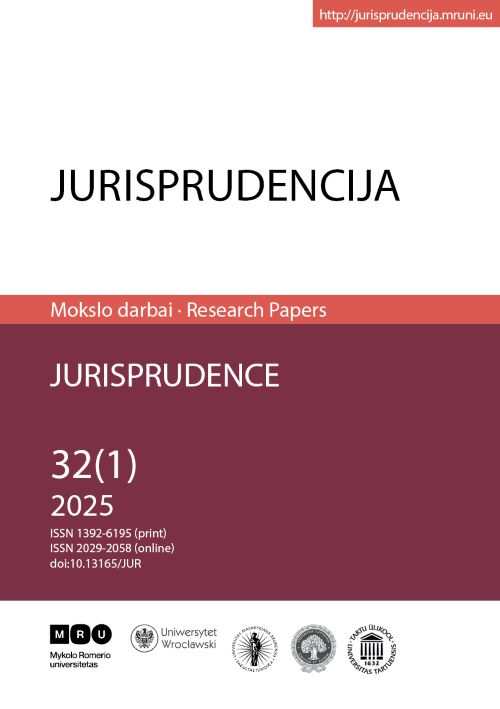THE SUBJECT OF CORRUPTION CRIMES – BRIBE: CERTAIN DEBATABLE/ PROBLEMATIC ISSUES
##plugins.themes.bootstrap3.article.main##
Abstract
The article analyses the subject matter of corruption offences (bribery, influence peddling, and kickback) - a bribe. A bribe can take various forms, while the correct identification of a bribe determines the application and severity of criminal liability. Therefore, the thesis analyses problematic issues related to the determination of the value of a bribe and delimitation of a bribe from a gift/a gift from a bribe. The author of the article has analysed how the value of a bribe is determined and has found that neither the legal regulation nor the case-law has established any special rules for proving the value of a bribe, and that its monetary value may be proved by all legal means. However, the case-law of the Supreme Court of Lithuania has formulated certain rules of interpretation of the law on the proof of the value of a bribe which allow for an effective solution of the problems of the application of the law in
relation to corrupt criminal offences. The article also analyses the social and legal differences between a bribe and a gift: a gift is gratuitous and does not involve an official relationship, while a bribe is a reward for an act/omission done, being done or to be done in the future. It concludes that the general rule established by both legislation and case law is that gifts to public sector employees are prohibited and criminalised as bribes, irrespective of their denomination, value, as well as the moments of giving and receiving them.
Keywords: corruption; bribe, gift; value of bribe; form of bribe.
##plugins.themes.bootstrap3.article.details##

This work is licensed under a Creative Commons Attribution 4.0 International License.
This is an open-access journal, which means that all content is freely available without charge to the user or their institution. Users are allowed to read, download, copy, distribute, print, search, or link to the full texts of the articles in this journal without asking prior permission from the publisher or the author. This follows the BOAI definition of open access. Authors contributing to Jurisprudence agree to publish their articles under a Creative Commons Attribution 4.0 International Public (CC BY) License (applicable from 2025).
![]() Authors retain copyright of their work, with first publication rights granted to the Association for Learning Technology.
Authors retain copyright of their work, with first publication rights granted to the Association for Learning Technology.
Please see Copyright and Licence Agreement for further details.







